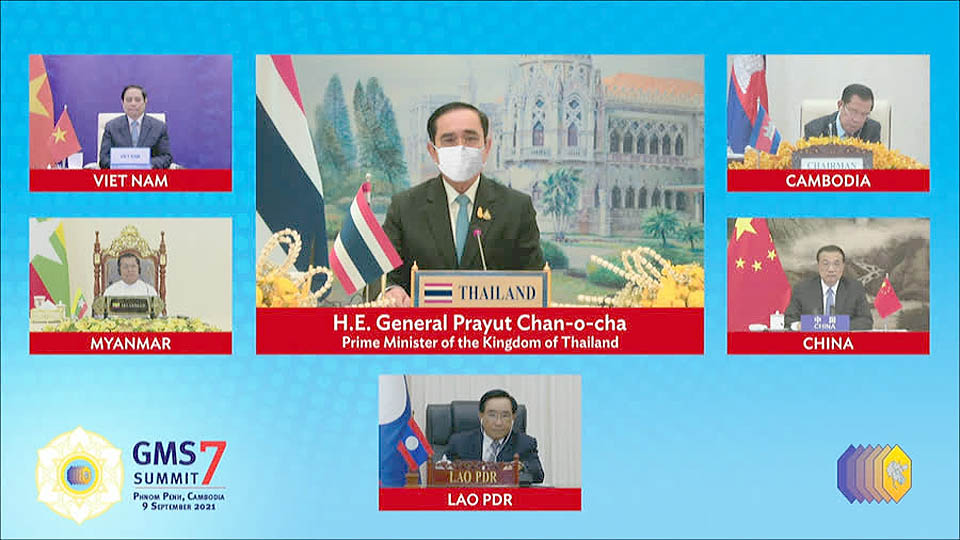
Thailand has proposed a three ‘Cs’ strategy to promote sustainable development within the Greater Mekong Sub-region (GMS) to ensure no one is left behind.
On Thursday, at Government House, Prime Minister Prayut Chan-o-cha participated in a video call of the 7th Greater Mekong Sub-region Summit hosted by Cambodia and the Asian Development Bank. Prayut praised the work of the GMS member countries in strengthening cooperation in tackling the coronavirus problem together.
In taking stock of the GMS cooperation, the prime minister presented Thailand’s 3C initiatives to ensure that the region is able to recover quickly from the negative impacts of the pandemic.
The first C is connectivity. Prayut said that it is pivotal to the development of seamless connectivity within the GMS region. Thailand, he added, has invested heavily in the development of a communications network to cover all parts of the country, linking rural and urban areas.
With the envisaged connectivity, he said that the south of Thailand would be able to serve as a land bridge for the rest of the GMS members. The prime minister also stated that the network can be extended to include the Indonesia-Malaysia-Thailand Growth Triangle.
“Thailand is also ready to connect by high-speed train with Laos, which will open up to China, expanding the range of regional supply chains,” he said, adding that Thailand has already funded the construction of several bridges linking Thailand with Laos and Cambodia.
The second C stands for competitive. The GMS countries need to increase their capacity to compete with other regions and this requires their private sectors to adjust to the new environment caused by the pandemic. Key business activities related to MSMEs, e-commerce and utilization of free trade agreements would help local communities raise their competitiveness, he added.
The third C is community. The GMS must become an inclusive community, which shares common visions and a future, the prime minister said. Along with the improved cooperation in public health security, Prayut also urged that GMS countries increase their cooperation in border management to mitigate the effects of coronavirus in years to come. Thailand has already opted for the bio-circular-green economic model as the national agenda, as it prepares to host next year’s Asia-Pacific Economic Cooperation meetings.
At the summit, the GMS members signed three documents: the 7th Joint GMS Summit Declaration, the GMS Strategic Economic Framework 2031, and the Economic Recovery and Response to Covid-19 Plan 2021-2023.
The GMS, (which was set up in 1992) comprises Cambodia, China (specifically Yunnan Province and Guangxi Zhuang Autonomous Region), Laos, Myanmar, Thailand and Vietnam.
These six countries entered into a program with the ADB assistance of sub-regional economic cooperation, designed to enhance economic relations. With support from ADB and other donors, the GMS Economic Cooperation Program supports projects in agriculture, energy, the environment, health and human resource development, information and communication technology, and tourism, among others. (NNT) – Article by Kavi Chongkittavorn
 |
 |
 |





